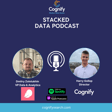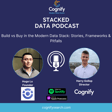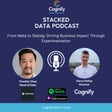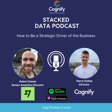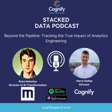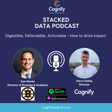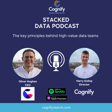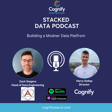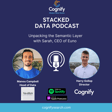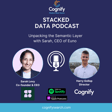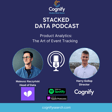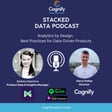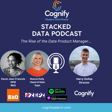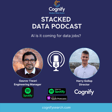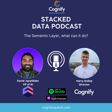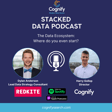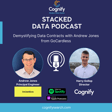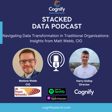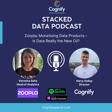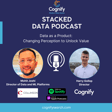
026 - How Monzo hyper-scales Analytics Engineering
We’re back, and we’re kicking off with a BANG! 💥
Monzo is home to one of the most respected data teams in the UK—true trailblazers in Analytics Engineering, regularly sharing insights into how they scale data. This episode is no different!
I had the pleasure of sitting down with John Azzopardi, Senior Analytics Engineering Manager at Monzo, who’s been with the company for over 6 years. We dive deep into how Monzo’s data team scaled from 20 to over 170 people and how Analytics Engineering plays a crucial role in supporting their hyper-growth.
In this episode, we cover:
✅The evolution of the Analytics Engineering function at Monzo
✅How the team is structured for success and their key responsibilities
✅Challenges of scaling Monzo’s data warehouse and infrastructure
✅Why incremental modeling is a cornerstone of their data strategy
✅The future of Analytics Engineering in fintech and what’s next for Monzo
If you’re looking to learn from one of the UK’s top data teams, this episode is a must-listen! 🎧
✨ Hear firsthand how Monzo is mastering data at scale and driving innovation in their infrastructure.
We’re dropping new episodes every other week, so make sure to FOLLOW & SHARE to stay in the loop!
#Podcast #Fintech #AnalyticsEngineering #DataEngineering #Monzo #Data #Innovation #DataInfrastructure #Scaling #IncrementalModeling #TechLeadership #ModernData
